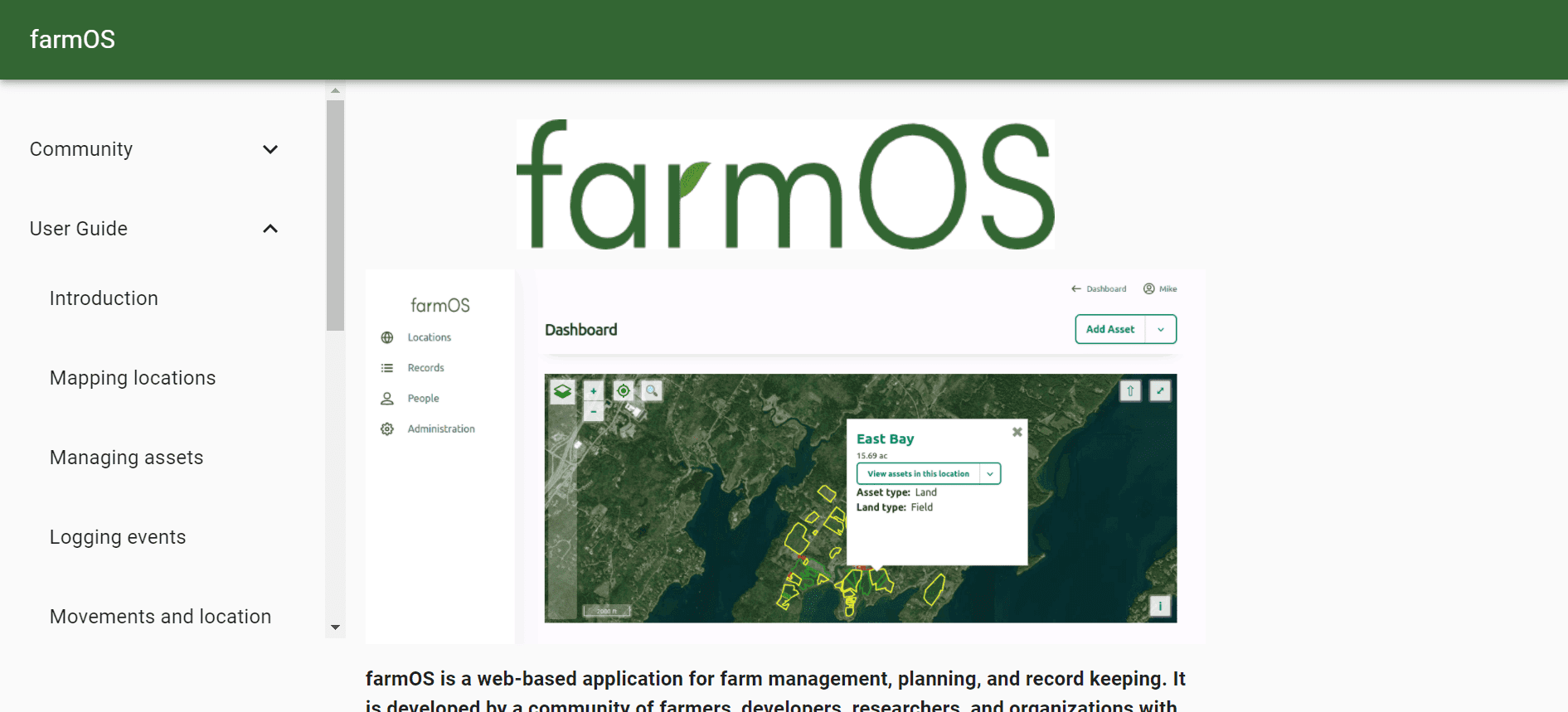After a year of development, farmOS rang in the new year with the first release of their next major version of the application: v2.0.0-beta1.
“If we look back at how much we’ve built in just the past couple years, it’s really amazing,” says Michael Stenta, founder, maintainer, and lead developer of farmOS. farmOS is a web-based application for farm management, planning, and record keeping developed by a community of farmers, developers, researchers, and organizations with the aim of providing a standard platform for agricultural data collection and management.
This updated version is not only built to be compatible with Drupal 9, an open source digital experience platform used to build the application, but brings many additional improvements, modernizations, and new features. Updates include new asset types such as seed or material, inventory tracking for assets and updated log types. Assets refers to anything a farmer or rancher is managing, such as land, crops, or livestock while logs identify either activities or events that take place on the farm like harvesting. Additionally, there is improved group membership logic, upgraded data streams for sensor integration, a better user experience and improved mobile support, updated APIs, and a new user guide so individuals can navigate the changes among other modifications. The farmOS website also saw some improvements and new documentation for hosting, development, module building, and API changes was shared.
“This means that farmers, and the organizations that serve them, can start using farmOS v2 for their data management today! And we can start working as a community on all of the big ideas that we’ve been preparing for with these upgrades, including more integrations with other systems and standardizing management data conventions to support data sharing, interoperability, and community-based benchmarking tools,” says Stenta, “This is just the first step. 2022 is going to be an exciting year!”
Current farmOS users will have the opportunity to make the switch and Farmier, the web-hosting companion to farmOS, is now offering farmOS v2 hosting. To make the migration process easier, farmOS has developed a way for users to automatically migrate from v1 to v2.
“Because so many people are using farmOS, we also have to manage the migration to the new platform and help people through that process, which requires a lot of forethought. So, we’ve created migration code which will migrate farmers from one version to the next automatically,” says Stenta.
Like other tools within the OpenTEAM technology ecosystem, farmOS is open-source and publicly accessible to any farmer. It serves as both a database and interface, so farmers can find, add, and manage data and information for their farm easily. From managing organic certification to equipment maintenance, farmers use farmOS to satisfy many different needs.
The application also includes an API (Application Programming Interface), making it possible for other programs such as Field Kit (farmOS’s companion offline-first mobile app) to push and pull from this database too. This implements interoperability among systems and, in the case of the Field Kit, makes it easier to use the farmOS interface offline.
Ever since the beginning, farmOS has been committed to remaining open source. Through open source development, each piece of code acts as a lego block which others can use and build on top of, moving progress faster and farther than otherwise. By being a part of the OpenTEAM community and technology ecosystem, farmOS has been able to gather support for the development of their application and connect and build off of other programs, helping farmers to more easily protect, manage, analyze, and share their data.
While this release is just the first step, “It’s hard to overstate how big of a step it is,” wrote Stenta in an update to the farmOS discourse group. As the new update makes farmOS more robust, flexible, and easier to use than ever, it creates a solid platform for the farmOS community to build further improvements on in the years to come.


